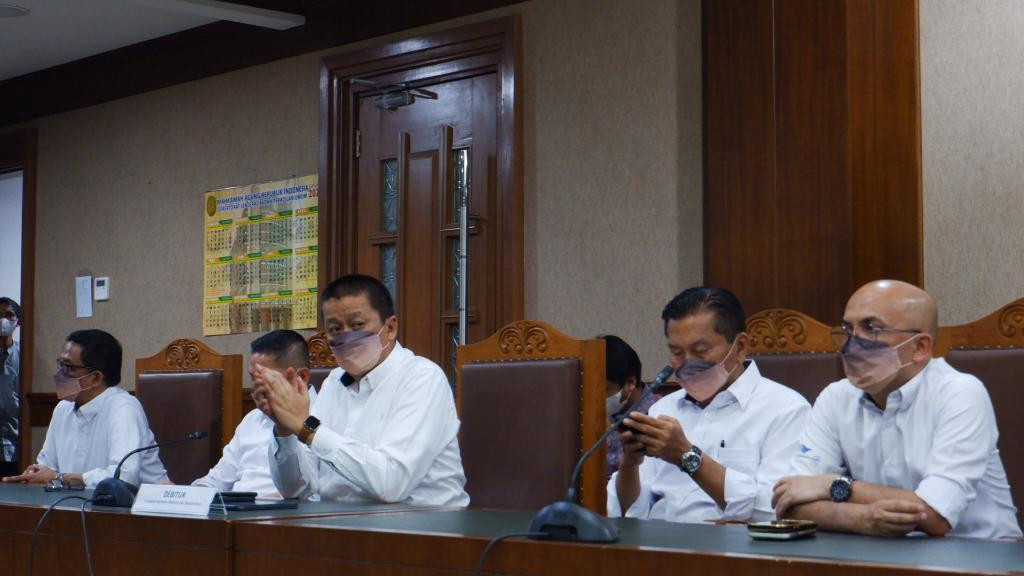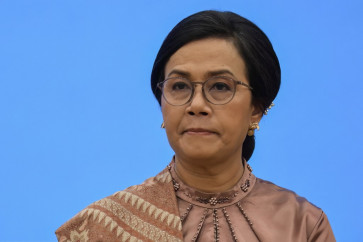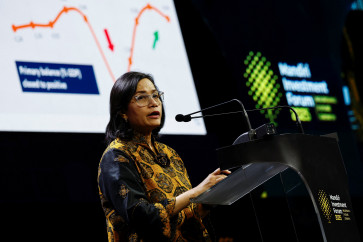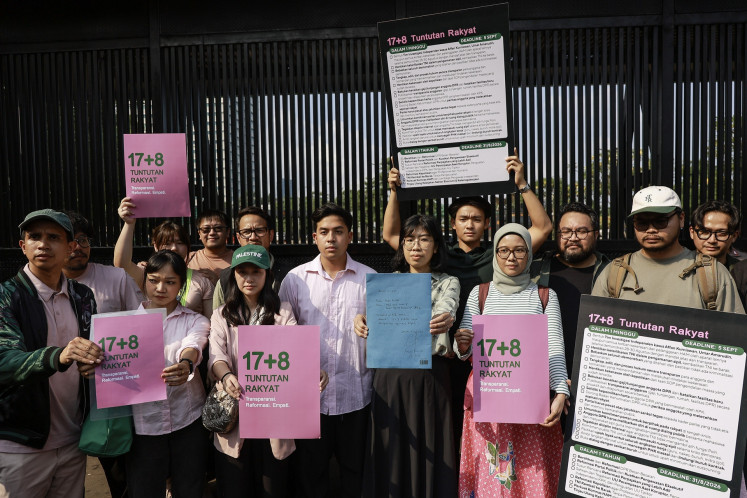Popular Reads
Top Results
Can't find what you're looking for?
View all search resultsPopular Reads
Top Results
Can't find what you're looking for?
View all search resultsGaruda still faces repayment risks, possible lawsuits
Boeing, other creditors can demand payment even after claims period passed: Experts.
Change text size
Gift Premium Articles
to Anyone
W
hile Garuda Indonesia is relieved that Boeing, along with several other creditors, did not make any debt repayment claim in the local court within the 30 days following its debt suspension case (PKPU) conclusion, experts believe this alone will not prevent creditors from filing lawsuits to force repayments later on.
Garuda Indonesia finance director Prasetio explained the 30 days were the last call for creditors who wanted to make a repayment claim but could not participate in the airline’s PKPU, which the Indonesian court concluded on June 27.
Prasetio said missing the 30-day period would disable creditors from making further repayment claims, even by filing it in an Indonesian court.
“By law, it’s like they are letting go of the repayments. So, we no longer have obligations to those firms that did not register their claim within the 30-day period,” he told reporters on Aug. 12.
Read also: Creditors approve Garuda's restructuring plan
The Indonesian court ratified Garuda’s debt restructuring proposal on June 27 after the airline won creditors’ approval by a landslide a week prior.
With the proposal, Garuda successfully cut nearly 81 percent of its Rp 142 trillion (US$9 billion) debt by converting it to a new $825 million debt and $330 million new equity.
Garuda said the new debt and equity amount included a scenario if Boeing decided to file their claim within the 30-day period. With Boeing’s absence, the airline now needs to recalculate the number, which would allow for a much lower issuance amount.
Garuda Indonesia CEO Irfan Setiaputra told reporters on the same day that, despite Boeing’s absence, the airline would still need to pay around 20 percent of its total debt, higher than the previous 19 percent.
However, Irfan said it was still a success, as the airline could still maintain its debt at that level even though the debt continued to grow during and after the PKPU period.
“It’s around 20-point-something percent, but still below 21 percent. Percentage-wise, it’s actually bigger [than before], but our plan’s execution is much better now,” Irfan said.
But Anisah, an Indonesia Islamic University (UII) lecturer specializing in bankruptcy law, told The Jakarta Post on Monday that Indonesian law was actually different from what Garuda claimed.
She said any liabilities that had not been settled would exist nonetheless, unless Garuda struck a deal with its creditors for a different arrangement to settle the debt.
“If the borrower has yet to repay their debt, then creditors still have the right to collect repayments at any time, either through litigation or non-litigation,” she said.
She also underlined that Indonesian law recognized any form of repayment collection through bankruptcy laws in foreign jurisdictions, and efforts to pursue in-court collection could still emerge outside Indonesia regardless unless a contract explicitly barred each other from going to foreign jurisdictions. This includes when a local court has made its verdict.
Arista Atmadji, who founded the Arista Indonesia Aviation Center (AIAC), said such an option was plausible and could be the method Boeing chooses. However, he suggested Boeing focus on retaining its business in the airline instead, which would be not possible if a lawsuit was made.
“The Indonesian airline market is very prospective. Boeing needs to see the opportunity ahead,” Arista told the Post on Monday.
Read also: Garuda Indonesia seeks new investors after escaping bankruptcy
Other challenges
Garuda on Aug. 12 also signaled that the long-awaited rights issue would be pushed even further in the third quarter this year, as the airline is still required to provide its financial statements from the first half, which have not yet been concluded.
During its extraordinary general shareholders' meeting, Garuda was initially set to ask its shareholders on Aug. 12 for their approval to conduct a rights issue.
However, that agenda was pushed back to Sept. 26, implying the Rp 7.5 trillion state injection (PMN) – needed to aid its debt restructuring – would likely be postponed. Garuda still hopes that the government will approve the disbursement within weeks.
AIAC’s Arista said that a month of postponement was not likely to greatly affect Garuda, but he hoped the disbursement would be executed sooner rather than later to avoid any disruption to the airline’s recovery process.
“Garuda has yet to fully recover. Now its plan is only [to acquire] around 35 planes instead of 150. The government must disburse the [PMN] fund. Do not let it be delayed to next year because there could be a problem,” Arista said.










